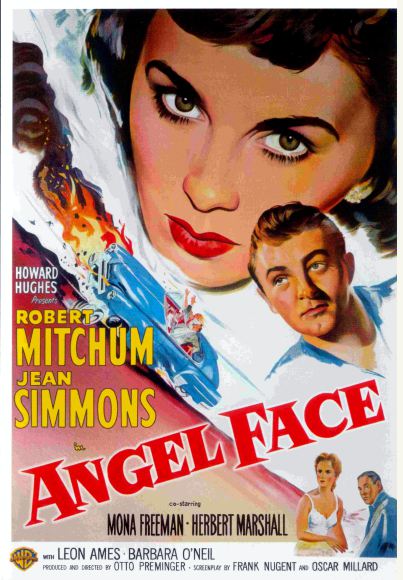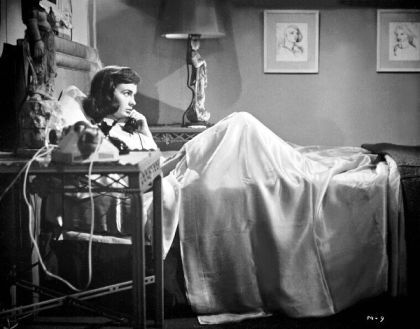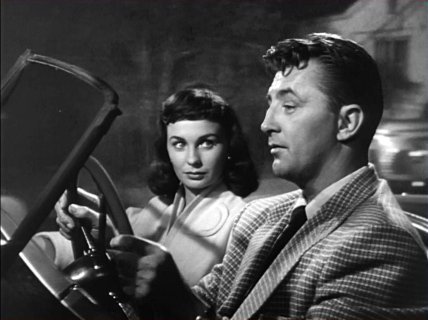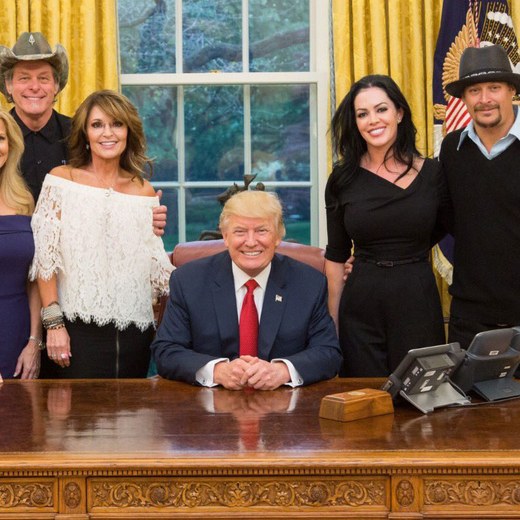 The Noir Odyssey
The Noir Odyssey
Writer: Frank Nugent and Oscar Millard
Story: Chester Erskine
Director: Otto Preminger
Cinematographer: Harry Stradling
Music: Dimitri Tiomkin
Cast: Robert Mitchum, Jean Simmons, Herbert Marshall, Barbara O’Neil, Leon Ames
Release: February 11, 1953
Studio: RKO Pictures
Percent Noir: 60%
“Angel Face” is the blackest of black films, and yet takes place mostly during the day in bright, large spaces. Here is a film without an ounce of sympathy for its main characters… and that somehow makes it impossible to look away from. In case you can’t tell, it’s a film of contradictions, and that’s what makes it extraordinary.
Robert Mitchum plays a schlub ambulance driver named Frank (because of course his name is Frank) who answers a call one night to a house way up in the Hollywood hills. Catherine (Barbara O’Neil) has suffered from gas poisoning, but is doing fine by the time Frank gets there. On his way out, Frank meets Catherine’s step-daughter Diane (Jean Simmons), who is upset. He assumes it’s because she almost lost her stepmother, but of course it’s because Diane’s murder attempt was botched.
Frank’s got a girl, Mary (Mona Freeman), but he doesn’t care about her. She’s only a conversation starter – something for Diane and Frank to discuss as foreplay. Diane goes into the usual manipulations to demonize her mother-in-law, but Frank sees right through them. This is one of the blessings of “Angel Face” being made near the end of the classic noir cycle – audiences have seen that story already so screenwriters Frank Nugent and Oscar Millard blow right past it. They want us to know that Frank sees Diane for the femme fatale she is, and doesn’t care. The way Frank uses logic on Diane to tear apart her machinations is one of the high points of the film, with crisp dialogue and Diane’s confused eyes watching Frank, trying to read what he’s thinking.
 Not-so-shockingly, Catherine ends up dead along with Diane’s father. Diane has rigged up their car so that it’s stuck in reverse and, when the gas pedal is touched, it shoots into full throttle. The car goes careening down the mountain in an epic car smash-up. As if that wasn’t cool enough, director Otto Preminger and his editor intercut this with Diane playing piano, just in case we didn’t already know she was heartless.
Not-so-shockingly, Catherine ends up dead along with Diane’s father. Diane has rigged up their car so that it’s stuck in reverse and, when the gas pedal is touched, it shoots into full throttle. The car goes careening down the mountain in an epic car smash-up. As if that wasn’t cool enough, director Otto Preminger and his editor intercut this with Diane playing piano, just in case we didn’t already know she was heartless.
Frank and Diane are arrested for the murders, and here is where “Angel Face” stumbles a bit. A lawyer (Leon Ames) forces the duo to get married to bolster their defense, and for a good 20 minutes in the second act we completely abandon Frank and Diane’s point-of-view, instead focusing exclusively on the trial. They don’t even get a line or a dramatic turn on the stand – they just sit there silently as their lawyer does all the talking. Noir masterworks “Leave Her to Heaven” and “The Postman Always Rings Twice” also embraced lengthy courtroom scenes in their second halves, but both kept us engaged with the characters. They also had character actors Vincent Price and Hume Cronyn, respectively, turning in career-best turns in their plum little roles as lawyers. Ames was also in “Postman” as the DA, but you barely hear about his performance, and here he doesn’t rise to the occasion. In addition to a lesser performance, Ames isn’t given the same delicious material to sink his teeth into. The results are enough time for a long bathroom break or the perfect time to get popcorn, since it’s a foregone conclusion that Frank and Diane are going to be acquitted.
Things improve exponentially once Frank walks out on Diane to go throw himself on Mary’s mercy, but he weirdly doesn’t pack before he leaves. Huh, it’s almost like it’s a game. And that’s where “Angel Face” is at its best, with its two main characters dancing around one another pretending to care about what’s happening. Diane wanders around the now-empty house, the cat that caught the canary and then choked on it. Frank comes back again “to pack” and Diane convinces him to let her drive him “to the airport.” He feigns determination at leaving her, but when he sees a champagne bottle sitting in the car he wastes no time in popping it.
 Then, of course, we get perhaps the bleakest ending in film noir – Diane plows the car over the same hill where she killed her parents, plunging them to their own deaths. As awesome as the first wreck was, it was fairly obvious that there were dummies in the seats. Here, on the other hand, the dummies are spot-on, and the Mitchum one in particular flails perfectly as it’s crushed in the wreckage. It’s unnerving.
Then, of course, we get perhaps the bleakest ending in film noir – Diane plows the car over the same hill where she killed her parents, plunging them to their own deaths. As awesome as the first wreck was, it was fairly obvious that there were dummies in the seats. Here, on the other hand, the dummies are spot-on, and the Mitchum one in particular flails perfectly as it’s crushed in the wreckage. It’s unnerving.
Mitchum had done this type of roll a bunch by now, and had even sent up the persona in the great noir comedy “His Kind of Woman.” He could have sleep-walked through it, and the fact that he didn’t is a testament to his professionalism. The camera is in love with Simmons, who doesn’t quite rank among the best femme fatales in cinema history, but she does an admirable job of seducing and killing, and I’m not sure what more you could ask for.
Director Preminger, of course, is one of the most important voices in American film, and his footprints in the noir genre are major (“Laura!” “Fallen Angel!” Whirpool.” “Where the Sidewalk Ends!”). But even his non-noir films are heavily influenced by the genre, to the point where films like “Daisy Kenyon,” “The Man With the Golden Arm” and “Anatomy of a Murder” are often called noir because of their visual eccentricities and tone. Here he works with an assured hand, and thank God for that, since a lesser director’s film would have us hating Frank and Diane and ready to walk out by minute 15.
Preminger is aided immensely by Harry Stradling’s fantastic cinematography. Together, the two ditch the fog and shadows of most noir and give us an un-showy production in the bright light of Los Angeles. The light works because the characters and their actions are so dark. Stradling worked often with visual masters like Hitchcock, Minnelli and Kazan, and it’s a shame he didn’t have more collaborations with Preminger.
Because of the middling second act, “Angel Face” just misses that first tier of noir reserved for the masterpieces, but any connoisseur of the genre should really seek it out for the finale alone.
Score: ****
Advertisements Share this:




